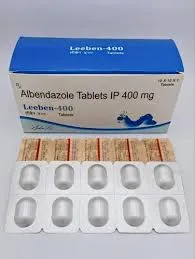- Afrikaans
- Albanian
- Amharic
- Arabic
- Armenian
- Azerbaijani
- Basque
- Belarusian
- Bengali
- Bosnian
- Bulgarian
- Catalan
- Cebuano
- Corsican
- Croatian
- Czech
- Danish
- Dutch
- English
- Esperanto
- Estonian
- Finnish
- French
- Frisian
- Galician
- Georgian
- German
- Greek
- Gujarati
- Haitian Creole
- hausa
- hawaiian
- Hebrew
- Hindi
- Miao
- Hungarian
- Icelandic
- igbo
- Indonesian
- irish
- Italian
- Japanese
- Javanese
- Kannada
- kazakh
- Khmer
- Rwandese
- Korean
- Kurdish
- Kyrgyz
- Lao
- Latin
- Latvian
- Lithuanian
- Luxembourgish
- Macedonian
- Malgashi
- Malay
- Malayalam
- Maltese
- Maori
- Marathi
- Mongolian
- Myanmar
- Nepali
- Norwegian
- Norwegian
- Occitan
- Pashto
- Persian
- Polish
- Portuguese
- Punjabi
- Romanian
- Russian
- Samoan
- Scottish Gaelic
- Serbian
- Sesotho
- Shona
- Sindhi
- Sinhala
- Slovak
- Slovenian
- Somali
- Spanish
- Sundanese
- Swahili
- Swedish
- Tagalog
- Tajik
- Tamil
- Tatar
- Telugu
- Thai
- Turkish
- Turkmen
- Ukrainian
- Urdu
- Uighur
- Uzbek
- Vietnamese
- Welsh
- Bantu
- Yiddish
- Yoruba
- Zulu
Nov . 07, 2024 19:56 Back to list
Oxytetracycline Injection for Treating Oral Ulcers and Enhancing Recovery Process
Oxytetracycline Injection for Mouth Ulcers An Overview
Mouth ulcers, also known as canker sores or aphthous ulcers, are painful lesions that occur in the oral mucosa. They are often characterized by an erythematous halo and a central ulceration that can make eating, drinking, and speaking uncomfortable. While most mouth ulcers heal on their own within a week or two, some may require medical intervention, especially in cases of severe pain or recurrent episodes. One such treatment option that has garnered attention is oxytetracycline injection, a broad-spectrum antibiotic belonging to the tetracycline class.
Understanding Mouth Ulcers
Mouth ulcers can be triggered by various factors including stress, hormonal changes, nutritional deficiencies (such as a lack of vitamin B12, iron, or folic acid), mechanical trauma (such as biting the cheek), and certain underlying medical conditions. The pain associated with these ulcers can affect a person's quality of life, causing discomfort while eating, drinking, and speaking. In addition to the physical pain, mouth ulcers can also lead to emotional distress due to their visible nature and potential for recurrence.
What is Oxytetracycline?
Oxytetracycline is an antibiotic that is effective against a variety of bacteria. It works by inhibiting bacterial protein synthesis, thereby preventing the bacteria from growing and multiplying. This medication is typically used to treat infections such as respiratory tract infections, urinary tract infections, and certain skin conditions. However, its application extends beyond these common uses, as it has shown promise in treating inflammatory conditions, including those affecting the oral cavity.
The Role of Oxytetracycline Injection in Treating Mouth Ulcers
oxytetracycline injection for mouth ulcer

While topical treatments are the first line of defense for treating mouth ulcers, some cases may benefit from oxytetracycline injections, particularly when the ulcers are severe or recurrent. The injection can reduce bacterial infection in the affected area, speed up the healing process, and alleviate pain associated with the ulcer. This systemic approach helps ensure that the medication reaches the bloodstream quickly, providing rapid relief.
An additional advantage of oxytetracycline injection is its anti-inflammatory properties, which can be beneficial in reducing the inflammation associated with painful mouth ulcers and improving overall comfort. Research suggests that antibiotics like oxytetracycline may help alter the microbial flora in the oral cavity, potentially addressing any underlying bacterial contribution to the ulceration.
Administration and Precautions
Oxytetracycline injections are typically administered in a clinical setting by a healthcare professional. The dosage and frequency will depend on the severity of the condition and the individual patient's response to treatment. Patients should be aware of potential side effects, which can include gastrointestinal disturbances, photosensitivity, and allergic reactions. Moreover, as with any antibiotic, there is a risk of developing antibiotic resistance, making it essential for healthcare providers to evaluate the necessity of such treatments.
Alternative Treatments and Conclusion
While oxytetracycline injection can provide relief for mouth ulcers, it is not the only option available. Other treatments include topical corticosteroids, antifungal medications, and over-the-counter pain relievers. Additionally, maintaining good oral hygiene and avoiding potential irritants like spicy foods, acidic beverages, and tobacco can help mitigate the occurrence of mouth ulcers.
In conclusion, oxytetracycline injections represent a viable treatment option for individuals suffering from severe or recurrent mouth ulcers. The antibiotic's effectiveness in addressing both bacterial infection and inflammation makes it a compelling choice when other treatments may not suffice. As always, patients should consult with healthcare providers to determine the most appropriate treatment plan tailored to their unique needs and circumstances. By understanding the causes and treatments for mouth ulcers, individuals can take proactive steps towards achieving relief and enhancing their overall oral health.
-
Guide to Oxytetracycline Injection
NewsMar.27,2025
-
Guide to Colistin Sulphate
NewsMar.27,2025
-
Gentamicin Sulfate: Uses, Price, And Key Information
NewsMar.27,2025
-
Enrofloxacin Injection: Uses, Price, And Supplier Information
NewsMar.27,2025
-
Dexamethasone Sodium Phosphate Injection: Uses, Price, And Key Information
NewsMar.27,2025
-
Albendazole Tablet: Uses, Dosage, Cost, And Key Information
NewsMar.27,2025













